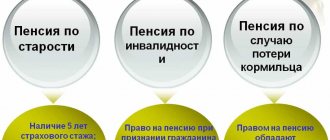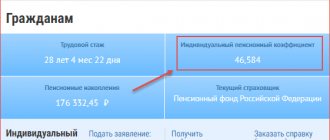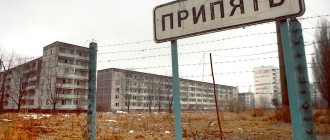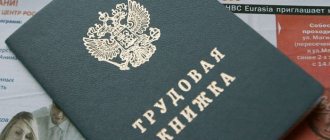There is at least some kind of constancy in this world: the planet is round, the grass is green, and pensions in Russia are not very generous. A citizen who has conscientiously worked for the required period of time can count on 14,116 RUB per month - this is the average for 2021. Here, of course, you can’t go wild: sometimes you can’t buy good meat, fruits or sweets, let alone going to a restaurant, traveling and other amusements become a rare pleasure.
There is at least some kind of constancy in this world: the planet is round, the grass is green, and pensions in Russia are not very generous. A citizen who has conscientiously worked for the required period of time can count on 14,116 RUB per month - this is the average for 2021. Here, of course, you can’t go wild: sometimes you can’t buy good meat, fruits or sweets, let alone going to a restaurant, traveling and other amusements become a rare pleasure.
But everything can change if you pluck up the courage and go abroad - in some countries it is quite possible to live on a Russian pension, and allow yourself much more joys. True, for this you need to have your own housing in order to rent it out, and use the proceeds to rent an apartment in the chosen location. All that remains is to determine the direction: we compare prices for rent, food, public transport and entertainment according to the website.
Russia
For clarity, here are a few numbers from domestic realities. The estimated cost of living for a person with an average level of consumption (excluding housing) is 20,600 RUB per month (one pension is not enough). A package of milk costs 45-70 RUB, a loaf of bread - 25-50 RUB, 1 kg of chicken fillet - 175-300 RUB, beef tenderloin - 310-500 RUB, bananas - 50-80 RUB, a bottle of wine - 300-600 RUB. Lunch in an inexpensive cafe: 300-700 RUB, 3-course dinner for two in a mid-level restaurant (excluding alcohol): 1400-3000 RUB.
Tickets for public transport in Russian cities: 20-50 RUB, monthly passes: 1000-2000 RUB. A subscription to a fitness club costs 1300-3500 RUB per month, depending on the geography and prestige of the establishment.
And now - about what can be turned into income, that is, about the prices for rental housing. 1-room apartments in Moscow are rented for an average of 29,000 RUB per month, in the Moscow region - for 17,000 RUB, in Yaroslavl - for 12,000 RUB, etc. This is the money that can be spent on renting housing abroad.
Which buildings in Moscow have the most expensive apartments: top 5.
Procedure for obtaining a Russian pension abroad
An application for a Russian pension abroad should be submitted to the territorial branch of the Pension Fund of the Russian Federation at the place of registration of the person, including a temporary one. A pension can be assigned both to persons who have just received the right to it (i.e. to those who went abroad before retirement age) and reassigned to those who went abroad as a pensioner.
To assign a Russian pension abroad for the first time to the territorial branch of the Pension Fund, you must provide a number of documents, in particular these:
- statement;
- a copy of the passport of a citizen of the Russian Federation;
- a copy of SNILS;
- documents confirming work experience (work book, certificates from work);
- salary certificate for any 5 years;
- other documents, the composition of which depends on the specific situation
Let us note that the Russian Federation has concluded special international agreements with a number of countries (15 agreements with 19 countries), in accordance with which the procedure for assigning and calculating pensions for Russian citizens living in a particular country is determined. A specific list of countries and the conditions for assigning a Russian pension in each of them can be found here.
Egypt
Egypt is a year-round burning sun, sea and beaches, sights with a thousand-year history, noisy markets and cozy hookah bars. If excursions to the pyramids of Giza and the temples of Luxor were not enough, welcome to permanent residence: the average cost of living is 12,650 RUB per month per person.
A liter of milk in conversion costs 50 RUB, white bread - 30 RUB, a package of eggs - 65 RUB, chicken breasts - 265 RUB per 1 kg, beef tenderloin - 515 RUB, wine - 470 RUB. Thus, prices are comparable to ours, and fruits are even cheaper: bananas for 40 RUB, oranges for 25 RUB per 1 kg.
You can ride on public transport for 7-8 RUB, a travel card costs 240 RUB, a trip to the cinema - 225 RUB, a subscription to a fitness club - 1490 RUB, lunch in a cafe - 200 RUB, a hearty dinner in a restaurant - 1100 RUB for two, benefit obvious. Finally, renting a 1-bedroom apartment in the city center will cost RUB 10,500 per month.
Egypt: true or false. A test of 10 facts about the country beloved by tourists:
Tunisia
If Egypt seems too touristy, but overall the destination is nice, we recommend taking a closer look at Tunisia. There, too, you can bask on the sandy coast, dive and explore ancient monuments like Carthage and the Colosseum.
But the main features are French charm (the era of the colonialists did not pass without a trace) and thalassotherapy using healing sea water, mud and other natural resources.
The cost of living per person in Tunisia is only 9,800 RUB per month; Russian pensioners can live in luxury. Buy milk for 25 RUB, bread for 7 RUB, fresh cheese for 400 RUB per 1 kg, chicken fillet for 170 RUB and selected beef for 410 RUB. And, of course, fruits and vegetables: from apples and bananas for 60-70 RUB to tomatoes, onions and potatoes for 20-25 RUB per 1 kg. Wine will cost 220 RUB per bottle, beer - 40 RUB, a pack of cigarettes - 130 RUB.
Entertainment includes going to cafes (110 RUB) or restaurants (800 RUB for two), cinemas (155 RUB) and fitness clubs (1160 RUB for a subscription). A ticket for public transport costs 11 RUB, a monthly pass costs 670 RUB. Apartments are also quite affordable: one-bedroom apartments in the city center - 9200 RUB per month, a little further away - 6650 RUB.
Russian pension when living abroad
Russian citizens living abroad of the Russian Federation can apply for a pension through the Pension Fund of the Russian Federation, exercising their pension right in three options:
- registration of a newly assigned Russian pension citizens who traveled abroad before becoming eligible for pensions in the Russian Federation.
This option for obtaining a pension can only be implemented if you have Russian citizenship.
If a foreigner who worked in Russia left the Russian Federation, for example, before reaching retirement age, a pension cannot be assigned to him, unless otherwise provided by the relevant international treaty;
- registration of pension payment restoration, which was appointed in accordance with Russian pension legislation.
This option for obtaining a pension applies to both Russian citizens and foreign citizens, and stateless persons, i.e. if a foreigner in Russia was assigned a Russian pension, if desired, he can receive it in a number of cases even after leaving the Russian Federation;
- registration of a pension on the basis of international agreements (treaties) of the Russian Federation in the field of pension provision.
Requirements for processing the payment of a Russian pension abroad
The single requirement for processing the payment of a Russian pension abroad is:
- annual confirmation of the fact that the pensioner is alive, as well as
- from January 1, 2021, submission of a document confirming the fact of carrying out (termination) of work and (or) other activities outside the territory of the Russian Federation, during which the citizen is not subject to compulsory pension insurance in accordance with the Federal Law “On Compulsory Pension Insurance in the Russian Federation.”
At the same time, documents required for registration of a Russian pension abroad and issued by foreign authorities (officials) must be legalized in the prescribed manner, unless otherwise provided by an international treaty (agreement) of the Russian Federation.
Types of pensions that can be issued to Russian citizens living abroad:
- pensions for compulsory pension insurance (insurance pensions and funded pensions);
- state pensions (state pensions and military pensions) with the exception of social pensions;
- additional payments to pensions related to the specific nature of work (pilots, miners, for special merits, nuclear scientists, etc.);
- monthly cash payments (MCP) to certain categories of citizens (veterans, disabled people, citizens exposed to radiation, Heroes of the Soviet Union, Heroes of Socialist Labor, etc.).
Where to apply for a Russian pension while living abroad
Russian citizens:
- living abroad,
- having registration at the place of residence or stay on the territory of the Russian Federation,
An application for a pension is submitted to the territorial body of the Pension Fund of the Russian Federation at the place of registration in the Russian Federation.
Russian citizens:
- living abroad,
- who are not registered on the territory of the Russian Federation,
submit an application for the appointment and registration of a pension, as well as the necessary documents, to the Pension Fund of the Russian Federation by mail to the address:
- 119991, Moscow, st. Shabolovka, 4, GSP-1.
Personal reception of citizens living abroad who do not have registration on the territory of the Russian Federation (or their authorized representatives), and acceptance of documents from them is carried out by the Department for Pension Provision of Persons Living Abroad, the Pension Fund of the Russian Federation at the address: Moscow, st. . Anokhin 20 bldg. A (metro station "Yugo-Zapadnaya").
New registration of pensions for Russian citizens living abroad
This option for obtaining a pension is possible if a citizen of the Russian Federation moved to live abroad both before and after the right to assign a pension under Russian pension legislation.
To apply for a pension under this option, you must submit the following documents to the Pension Fund of the Russian Federation:
- application for a pension;
- copy of Russian passport;
- a copy of the insurance certificate of compulsory pension insurance (SNILS) (if available);
- documents on insurance experience. The original work book or a clear, readable copy of the work book, or original certificates of periods of work;
- salary certificate for any 5 consecutive years of employment. The certificate must contain the number and date of issue, last name, first name, patronymic of the person to whom the document is issued, the grounds for issuance, as well as information on the deduction of contributions to the Pension Fund of the Russian Federation (if the certificate is submitted for the period from 1991 to 2001). The salary certificate must be signed by the head of the enterprise, the chief accountant and certified with a seal. Presented in original;
- copy of military ID. Provided in case of military service. In the absence of a military ID, a certificate from the military commissariat about the period of military service may be presented;
- a copy of the document confirming the change of surname. Provided if the surname changed upon marriage or divorce;
- a copy of the child's birth certificate. Provided if a non-working mother is on parental leave until they reach the age of one and a half years;
- a certificate confirming permanent residence outside the Russian Federation, indicating the date of move, including from one foreign state to another, which is issued by a diplomatic mission or consular office of the Russian Federation;
- from January 1, 2021, certificates of completion (non-performance) of paid work.
Decree of the Government of the Russian Federation dated August 13, 2016 No. 793 “On introducing amendments to the Regulations on the procedure for paying insurance pensions to persons leaving for permanent residence outside the territory of the Russian Federation”
All copies are certified by the Russian consular office abroad. You can submit an application for a pension with documents in person, by mail or through a representative whose authority must be notarized.
Registration of restoration of pension payment, which was to a Russian citizen who left for permanent residence abroad
Registration of restoration of payment of a pension that was assigned to a Russian citizen who left for permanent residence abroad, in accordance with Russian pension legislation, is carried out on the basis of:
- applications to the Pension Fund of the Russian Federation for travel outside the Russian Federation - fill out the appropriate form;
- a certificate confirming permanent residence outside the Russian Federation (issued by diplomatic missions or consular offices of the Russian Federation);
- from January 1, 2021, certificates of completion (non-performance) of paid work (in cases established by the legislation of the Russian Federation).
Regulations on the procedure for paying insurance pensions to persons leaving for permanent residence outside the territory of the Russian Federation, approved. Decree of the Government of the Russian Federation dated December 17, 2014 No. 1386
After the restoration of pension payments has been completed, in order to receive a pension in each subsequent year, the following must be submitted to the Pension Fund of the Russian Federation:
- proof of being alive or
- appear in person to draw up a personal appearance certificate at the relevant body that provides his pension provision on the territory of the Russian Federation, a diplomatic mission or consular office of the Russian Federation, and also
- from January 1, 2021, certificates of completion (non-performance) of paid work.
Registration of a pension on the basis of international agreements (treaties)
Currently, the Russian Federation has 15 international agreements with 19 countries, brief information about which is given in the tables below.
International agreements signed by the USSR
| A country | Agreement name | Agreement signing date |
| Czechoslovak Republic | Social Security Agreement | December 2, 1959 (in relation to the Czech Republic, this Agreement ceased to be in force on January 1, 2009 due to its unilateral denunciation by the Czech side) |
| Romanian People's Republic | Agreement on cooperation in the field of social security | December 24, 1960 |
| Hungarian People's Republic | Agreement on cooperation in the field of social security | December 20, 1962 |
| Mongolian People's Republic | Agreement on cooperation in the field of social security | April 6, 1981 |
International agreements in the field of pensions signed by the Russian Federation
| A country | Agreement name | Agreement signing date | Features of the agreement |
| Czech | Social Security Agreement | December 8, 2011 | The agreement is based on the principle of proportionality; each Contracting Party determines the right to a pension based on the insurance (work) experience acquired under its legislation. If your own length of service is not enough to determine your right to a pension, the length of service acquired under the legislation of the other Party is taken into account. |
| Armenia, Belarus, Kazakhstan, Kyrgyzstan, Tajikistan, Turkmenistan, Uzbekistan and Ukraine | Agreement on guarantees of the rights of citizens of the CIS member states in the field of pension provision | March 13, 1992 | The above agreements are based on the principle of territoriality. According to their standards, pension provision for citizens is carried out in accordance with the law and at the expense of the state in whose territory they live. In this case, work experience acquired in the territory of one and/or another country is taken into account. |
| Moldova | Agreement on guarantees of citizens' rights in the field of pensions | February 10, 1995 | The above agreements are based on the principle of territoriality. According to their standards, pension provision for citizens is carried out in accordance with the law and at the expense of the state in whose territory they live. In this case, work experience acquired in the territory of one and/or another country is taken into account. |
| Georgia | Agreement on guarantees of citizens' rights in the field of pensions | May 16, 1997 | |
| Lithuania | Pension Agreement | June 29, 1999 | |
| Kazakhstan | Agreement on guarantees of pension rights of residents of Baikonur, Republic of Kazakhstan | April 27, 1996 | |
| Ukraine | Temporary agreement on guarantees of the rights of citizens who worked in the regions of the Far North and areas equated to regions of the Far North in the field of pensions | January 15, 1993 | Citizens of countries who have worked in regions of the Far North or in areas equivalent to regions of the Far North, regardless of their place of permanent residence in the territory of both states, are entitled to early old-age pension. Payment of the Russian pension is made before the right to pension provision arises under the legislation of Ukraine. |
| Estonia | Agreement in the field of pensions | June 25, 1993 | Contracts are based on the principle of proportionality. In relations with Belarus and Latvia with elements of territoriality in relation to experience acquired on the territory of the USSR. They provide for the distribution of expenses for the payment of pensions depending on the amount of pension rights acquired by citizens in the countries. In this case, Russia is responsible only for the experience acquired on its territory. |
| Spain | Social Security Agreement | April 11, 1994 | |
| Belarus | Agreement on cooperation in the field of social security | January 24, 2006 | |
| Bulgaria | Social Security Agreement | February 27, 2009 | Contracts are based on the principle of proportionality. In relations with Belarus and Latvia with elements of territoriality in relation to experience acquired on the territory of the USSR. They provide for the distribution of expenses for the payment of pensions depending on the amount of pension rights acquired by citizens in the countries. In this case, Russia is responsible only for the experience acquired on its territory. |
| Latvia | Agreement on cooperation in the field of social security | December 18, 2007 |
Addendum to the agreement on Latvia
Registration of a pension for a Russian pensioner living in Latvia can be carried out according to the following options:
Option 1: for periods of insurance (work) experience acquired before January 1, 1991, the pension is assigned by the citizen’s country of residence. For periods after January 1, 1991, each country assigns a pension for length of service acquired on its territory (Russia assigns a pension for length of service acquired on the territory of the Russian Federation, and Latvia - for length of service acquired on its territory);
Option 2 : according to the laws of the country of which the pensioner is a citizen. In this case, a pension for a citizen of the Russian Federation is assigned according to Russian legislation, and for a citizen of the Republic of Latvia - according to Latvian legislation, regardless of place of residence. This choice is final and cannot be revised.
For details, see the material Assignment and payment of pensions for Russians living in Latvia
Addendum to the agreement on Belarus
Registration of a pension for a Russian pensioner living in Belarus can be done according to the following options:
OPTION 1: the assignment and payment of a Russian pension for periods of service acquired before March 13, 1992 in the territory of the former USSR is carried out in accordance with the law and at the expense of the country of residence. And for periods of experience acquired after this date in the territories of these countries - according to the legislation and at the expense of the country in whose territory this experience was acquired;
OPTION 2: at the request and on the basis of a citizen’s application, a pension may be assigned and paid in accordance with the legislation of the country of which he is a citizen, without applying the provisions of this Treaty. This choice is final and cannot be revised;
OPTION 3: if the legislation of the country at the new place of residence does not determine the pensioner’s right to a pension, then the country at the previous place of residence continues to pay the pension until the citizen acquires the right to a pension, including a pension of another type, in accordance with the legislation of the country at the pensioner’s new place of residence.
OPTION 4: when a pensioner moves from one country to another with at least 25 years of experience (for men) or at least 20 years (for women), fully worked out in the territory of one of the countries (including during the USSR period), payment The pension can be continued by the country that awarded the pension. In this case, the provisions of the Treaty do not apply. This choice is final and cannot be revised.
For details, see the material Assignment and payment of pensions for Russians living in Belarus
To apply for a Russian pension for citizens living abroad within the framework of international agreements (treaties), they should contact the competent authority of the country of residence.
If you have any questions about the violation of your rights, or you find yourself in a difficult life situation, then an online duty lawyer is ready to advise you on this issue for free.
ASSIGNMENT, REGISTRATION, PAYMENT AND DELIVERY OF PENSION
3. Mexico
Fans of the exotic can go even further - to Mexico. This is a real adventure paradise, surprising with the hospitality of the residents of villages lost in the depths of the tropical jungle, the diversity of flora and fauna, the silence of secluded beaches and the noise of megacities, the splendor of architecture and the piquant cuisine.
The average cost of living in Mexico is slightly higher than the Russian pension, 17,570 RUB per person per month, but you can save on food and rent.
For a rented one-room apartment in the center they are asking 16,650 RUB per month, outside the center - 10,800 RUB. The price of 1 liter of milk is 50 RUB, 1 kg of cheese is 300 RUB, chicken fillet is 260 RUB, beef tenderloin is 400 RUB. Oranges and bananas for 45-50 RUB per kilo, vegetables for 40-60 RUB. For lunch in a cafe: about 300 RUB, dinner in a restaurant: 1300 RUB. A movie ticket costs 215 RUB, a fitness subscription costs 1890 RUB, and a transport ticket costs 25 RUB.
- Where to relax without knowing foreign languages: the most suitable countries
- 13 countries of the world ideal for emigration
India
There are cheaper exotics: for example, India is the choice of adventurers for whom impressions are more important than everyday comfort. Or those who strive for spiritual enlightenment: in monumental temples of different eras and religions, even a materialist will think about the eternal. Or those who want to have a blast: all ages are welcome to party in Goa.
Monthly accommodation in India requires an average of RUB 9,570 per person. Plus renting a one-room apartment in the center for 9,700 RUB, in a residential area or suburb - for 6,100 RUB.
Grocery basket: milk - 40 RUB, bread - 25 RUB, eggs - 50 RUB, cheese - 270 RUB, chicken fillet - 180 RUB, beef tenderloin - 270 RUB, fruit - 40-50 RUB, vegetables - 20-30 RUB, wine — 500 RUB. You can eat out, because dinner for two in a decent establishment costs from 560 RUB. And also go to the cinema (220 RUB), play sports (1220 RUB) and ride public transport (530 RUB per pass).
5. Indonesia
Indonesia resembles India in appearance and mood: Hindu and Buddhist sights, sea and mountains - a win-win combination. But everything around is more neat and respectable, which is why the main audience are wealthy travelers who prefer polished service and the benefits of civilization.
In Indonesia, the average consumer spends about RUB 14,670 per month.
Milk and eggs cost 70-80 RUB, bread - 60 RUB, cheese - 515 RUB, chicken fillet - 200 RUB, beef - 525 RUB, bananas - 75 RUB, tomatoes and potatoes - 60-80 RUB per 1 kg. For lunch in a cafe you will have to allocate 120 RUB, for a 3-course dinner in a restaurant - from 700 RUB for 2 persons. A trip to the cinema will cost 220 RUB, a gym membership will cost 1,550 RUB, and a monthly pass will cost 820 RUB. One-room apartments in the center are rented for 15,300 RUB, in the distance - for 8,500 RUB.
Türkiye
To radically change your life, you don’t have to travel far away. You might prefer something more familiar and close: for example, Turkey, which has become something of a dacha for Russians. If you discard stereotypes, you will discover a lot of new and pleasant things: treasures like the landscapes of Cappadocia and the snow-white terraces of Pamukkale, the ski resorts of Uludag and Palandoken or the thermal spas of Yalova and Kangal.
And also restaurants with authentic cuisine, labyrinthine markets, unusual museums.
The estimated cost of living in Turkey is RUB 13,240 per month per person. Inexpensive products: a liter of milk - 30 RUB, a loaf of bread - 15 RUB, a package of eggs - 70 RUB, 1 kg of cheese - 210 RUB, chicken fillet - 140 RUB, beef tenderloin - 510 RUB, oranges and apples - 30-35 RUB, tomatoes and potatoes - 20-35 RUB, a bottle of wine - 315 RUB. You can have lunch in a cafe for 210 RUB or dinner for two in a restaurant for 740 RUB, go to the cinema for 180 RUB, buy a monthly gym membership for 1280 RUB or a travel pass for 1900 RUB. Renting a one-room apartment in the center will cost 13,400 RUB, in the periphery - 7,900 RUB per month.
Is it possible to live in a resort in Turkey on a Russian pension? Let's count:
Payment of pensions to Russian citizens abroad
Citizens who have earned the right to a Russian pension, who live outside the Russian Federation or are just planning to move to another country, in 2021 must be guided by the following regulatory documents:
- Law of the Russian Federation of December 15, 2001 No. 166-FZ “On state pension provision in the Russian Federation”;
- Art. 27 of the Law of the Russian Federation dated December 28. 2021 No. 400-FZ “On insurance pensions”;
- Resolutions of the Government of the Russian Federation No. 1386 of December 17. 2021 (approved Regulations “On the procedure for paying pensions to persons leaving for permanent residence outside the territory of the Russian Federation”), No. 793 dated 13.08. 2021 and No. 1020 dated 28.08. 2021;
- By Order of the Ministry of Labor and Social Protection No. 338n dated 06.04. 2021 “On approval of the Administrative Regulations for the provision of the Pension Fund of the Russian Federation with public services for the payment of pensions to citizens who leave (have left) for permanent residence outside the territory of the Russian Federation”;
- interstate agreements and treaties between the Russian Federation and the country of permanent residence of the pensioner (if any).
Who can claim a Russian pension when traveling abroad?
Most retired Russian citizens, if they leave the Russian Federation for permanent residence outside the country, have the right to transfer their pension abroad, with the exception of those who:
- receives a long-service pension for federal civil servants or a social pension of the Russian Federation (for disability, due to lack of insurance experience);
- lives in states with which the USSR/RF have concluded bilateral agreements on pension provision. The payment of pensions to such citizens has its own characteristics and occurs according to agreements.
Pensioners who have already issued a pension for themselves, in order to receive pension payments abroad, must submit a corresponding application to one of the Pension Fund branches 30 calendar days before the planned date of departure.
Please note that the application must specify the procedure for receiving money.
Those citizens who worked in Russia but have reached retirement age – 60 years for men and 55 years for women – while already living outside the territory of the Russian Federation can also apply for a Russian pension when moving abroad.
In this case, it is necessary that they satisfy all the conditions for assigning an insurance pension in accordance with Russian legislation: the presence of a minimum insurance period (in 2021 - 9 years), a minimum amount of pension points (in 2021 - 13.8 points).
Interesting fact. Pension provision in Russia was first introduced by Peter I. It was primarily about former military officers - “So as not to disgrace the honor of the uniform.” The soldiers who survived after 25 years of service were simply sent back to their native village, the disabled - to the monastery “to survive.”
What types of pensions are available to Russians living abroad
Russians who live abroad can count on receiving:
- labor pensions, both insurance and funded;
- state security pensions (state pensions);
- military pensions (but not in all countries);
- additional payments to pensions for special working conditions: pilots, miners, nuclear industry workers, persons with special services to the state;
- social monthly payments for veterans of the Great Patriotic War (DEMO).
The labor pension for Russian pensioners who left and live abroad, according to the legislation of the Russian Federation, compensates for the loss of wages and other remunerations related to the professional activities of the insured person upon the onset of his incapacity for work, and there are three types:
- old age pension;
- disability pension;
- survivor's pension (compensates disabled family members of the insured person for wages and other benefits lost due to the death of the breadwinner).
The state pension compensates for:
- earnings lost upon termination of federal civil service, upon reaching the required length of service, or upon retirement for old age or disability as a civil servant;
- lost earnings upon retirement for long service for cosmonauts and test pilots;
- harm caused to the health of Russian citizens while performing military duty as a result of man-made disasters;
- livelihood in case of loss of a breadwinner.
Military pensions are assigned to military personnel, employees of the Ministry of Internal Affairs, the fire service, the National Guard, who have reached the required length of service, as well as members of their families in the event of the loss of a breadwinner.
7. Romania
We are getting even closer to the Balkans, to Romania, covered in legends of varying degrees of gloom, full of natural beauty and elegant architecture. Transylvania is the birthplace of the great and terrible Dracula, with frankly tourist attractions (Bran Castle) and truly atmospheric locations (Poenari).
In summer it’s good to relax on the Black Sea beaches, in winter it’s good to ski in Poiana Brasov and Sinaia, in the off-season it’s good to walk around elegant Bucharest and improve your health in balneological clinics.
The average cost of living is 18,000 RUB per month per person. In order to save money, we are adjusting the menu: milk - 55 RUB, bread - 30 RUB, 1 kg of cheese - 290 RUB, chicken - 250 RUB, beef - 380 RUB, oranges and bananas - 65-70 RUB, potatoes and onions - 25-30 RUB . Wine is inexpensive, about 260 RUB per bottle, lunch in a modest eatery - 290 RUB, 3 courses for two in a restaurant - 1450 RUB. A month of classes in a fitness club - 1800 RUB, traveling by public transport - 910 RUB. Rent of one-room apartments - 13,000-18,000 RUB per month, depending on location.
How is a pension paid when moving to another country?
Article on the topic
How our pensions depend on age, work and place of residence
According to statistics for the period from 1990 to 2012, almost 70 thousand pensioners moved from the countries of the former USSR to permanent residence in the Republic of Belarus. In turn, 44 thousand pensioners left our country for other states.
According to the Law of the Republic of Belarus “On Pension Security,” pensions are assigned to citizens who permanently reside in the republic, Elena GOMOROVA, head of the pension legislation department of the main pension provision department of the Ministry of Labor and Social Protection of the Republic of Belarus, told AiF. When a pensioner leaves to live in another country, the payment of the pension stops.
If they go to Belarus
At the same time, the Law “On Pension Security” provides for the possibility of applying other rules for pensions if they are established by interstate treaties (agreements). This provision of the Law is relevant both for citizens who came to Belarus with pension rights formed on the territory of other states, and for citizens who formed pension rights in Belarus but live outside its borders.
The Soviet Union collapsed in 1991 - people began to leave their home countries and go in search of a better life. And then the question arose - if a person earned work experience in the USSR, which state will assume the obligation to pay a pension?
To solve such problems, on March 13, 1992, a basic Agreement was concluded on guarantees of the rights of citizens of the CIS member states in the field of pensions, which Belarus also signed. The agreement is based on the territorial principle, which provides for the assignment of a pension according to the laws of the state of residence. According to the Agreement, the obligation to assign and pay pensions for work experience received in the USSR is assumed by the state to whose territory the citizen moved. In addition to this Agreement, bilateral agreements were concluded with Ukraine and the Republic of Moldova, within the framework of which some aspects of pensions for citizens were specified, in particular the terms of termination and assignment of pensions.
The Republic of Belarus has also concluded bilateral international agreements on social security with Lithuania, Latvia and the Russian Federation. These agreements are based on the proportional principle, providing for the distribution of the obligations of states regarding the appointment and payment of pensions for length of service acquired on their territory.
The first state with which such an agreement was concluded was Lithuania. It provides for the export of pensions in the event of citizens moving from one state to another. Those. If a pensioner moves from Lithuania to Belarus, Lithuania will continue to pay him a pension. When a pension is initially assigned for Lithuanian service after January 1, 1992 (at least one year), the pension will be assigned by the Lithuanian state. Thus, a citizen of Lithuania, living in our country, will receive not only a Belarusian pension - if he has Belarusian (Soviet) experience, but also a Lithuanian one.
According to the agreement between Belarus and Latvia on cooperation in the field of social security, each party assigns and pays a pension taking into account the length of service earned on its territory. That is, Latvia pays for work in Latvia, even during the USSR period, and Belarus pays for work in Belarus.
Example
From 1970 to 2005, the person worked in Latvia, then moved to the Republic of Belarus. This means that the issue of assigning a pension for Latvian service, including during the period of work in the USSR, will be considered by the Latvian side in accordance with the law, taking into account the achievement of the retirement age established in Latvia.
Taking into account the migration flows of pensioners and citizens of working age within the Union State, the agreement between the Republic of Belarus and the Russian Federation on cooperation in the field of social security is relevant and important. Its provisions apply only to citizens of Russia and Belarus living on the territory of these states. The agreement provides for the assignment of a pension from Belarus and a pension from Russia in proportion to the length of service in each state after March 13, 1992, while the pension for Soviet experience before this date is assigned by the citizen’s state of residence. Another option is a pension under the laws of the state of which the applicant is a citizen. In this case, the choice of option is irreversible and cannot subsequently be revised (except in the case of a change of citizenship). The citizen chooses one of these options independently.
Example
A citizen of the Russian Federation currently lives in Belarus. He has work experience in Russia after March 13, 1992. According to the agreement, the issue of assigning a pension for this length of service will be considered by Russia. For length of service in the USSR and Belarus, a pension will be assigned and paid by Belarus. Instead of this option, this citizen can choose to receive a pension in accordance with the legislation of the Russian Federation, i.e. according to the laws of the state of which he is a citizen.
A citizen living in Belarus does not need to go to these states to receive a pension, taking into account the norms of international treaties with Latvia, Lithuania, and Russia. It is enough to contact the department of labor, employment and social protection at your place of residence in Belarus with the necessary documents. This department will send the corresponding set of documents to the competent institutions of the states. The pension will be paid in Belarusian rubles, Russian and Latvian - once a quarter in the last month of the quarter, Lithuanian - monthly.
There are (albeit rare) cases when pensioners from foreign countries move to us. Today, such a citizen permanently residing in Belarus is granted the right to a pension. If he does not have the right to a labor pension, in any case, upon reaching retirement age, he is guaranteed the right to a social pension - 50% of the BPM on average per capita (today 510 thousand rubles).
Ours abroad
If a Belarusian moves to live in Russia, Latvia, Lithuania, then his pension provision will take place in accordance with the international treaties discussed above.
If a pensioner leaves for the Russian Federation, Belarus stops paying a pension for the length of service received in the USSR, but continues to accrue a pension for the length of service received in Belarus after March 13, 1992. In turn, the Russian Federation assigns a pension for the length of service received under the USSR, and, if available, for Russian length of service. If, when assigning a pension in Belarus before leaving for Russia, a citizen of Belarus has chosen the option of receiving a pension according to the legislation of the Republic of Belarus, then in the event of his moving to live in the Russian Federation, he will continue to receive a Belarusian pension. Also, payment of the Belarusian pension can be continued in case of moving to Russia, if the citizen has at least 20/25 years (for women and men, respectively) of work experience in the territory of the Republic of Belarus, incl. during the USSR, calculated in calendar order.
If we talk about Latvia and Lithuania, then a pensioner from Belarus, moving to these countries, will receive a Belarusian pension on their territory.
If a Belarusian pensioner leaves for another CIS state that is a party to the agreement of March 13, 1992, then his pension will be calculated and paid according to the legislation of the state of resettlement.
Often Belarusian pensioners leave for permanent residence in foreign countries with which Belarus does not have international agreements on pension provision. In this case, the pension payment stops. In accordance with the Law, pension payment is guaranteed 6 months in advance before departure. Further pension provision for this citizen will be carried out depending on the legislation of the state of resettlement.
In general, on issues related to pension provision, incl. taking into account the norms of international treaties, you should contact the labor, employment and social protection departments at your place of residence.
By the way
Today in Belarus, about 14 thousand pensioners receive a Russian pension (from Russia only or from Russia and Belarus). Belarus pays pensions in Russia to approximately 700 of its citizens.
Currently, work is underway on draft agreements with Azerbaijan and the Czech Republic. The issue of concluding bilateral agreements with Ukraine, Estonia and Kazakhstan is being considered.
8. Bulgaria
And finally - an option for those who are not in the mood for serious changes, but want to live in a country with a mild climate, on the seashore, without bothering with the language barrier and bureaucratic delays. Bulgaria has been the favorite resort of our compatriots since the times of the USSR, because it is warm and safe here, almost everyone speaks Russian, and the opportunities for beach, ski, excursion and health holidays are impressive.
For a comfortable life in Bulgaria you need 19,400 RUB per month per person plus the cost of renting an apartment (one-room apartments from 16,700 RUB in the center and 12,300 RUB in residential areas).
Prices for products are comparable to Russian prices: milk - 70 RUB, bread - 35 RUB, cheese - 360 RUB per 1 kg, chicken fillet - 300 RUB, beef - 460 RUB, fruit - 70-90 RUB, vegetables - 35-90 RUB. A bottle of wine will cost 300 RUB, beer - 45 RUB, lunch in a cafe - 360 RUB, dinner for two in a restaurant - 1450 RUB. The cost of a monthly pass is 1800 RUB, a fitness subscription is 1480 RUB, a movie ticket is 360 RUB. In general, it is unlikely that you will be able to save money, but you will definitely get more pleasure for the same costs.
January 19, 2020
What to do if you temporarily leave Russia
You can go to Turkey for a week in winter very inexpensively - so much so that sometimes even pensioners can afford it. And in the case of such a short trip, there is no need to worry about the pension: if a person receives it with the postman, he will receive the money at the post office when he returns to Russia, and he can withdraw it from the card at any time (and if it is a Visa or MasterCard, then and directly abroad).
The main thing here is to avoid a 6-month delay in receiving your pension.
and more, otherwise the law allows the Pension Fund to suspend pension payments.
If this happens, you need to go to the Pension Fund and apply for renewal of payments. The pension for the period of suspension will not go anywhere and will be paid to the pensioner in full. By the way, you can also submit such an application through the State Services portal, which is actually available all over the world.
However, this is not all the problems. Pensioners who are accustomed to living in another country for a long time (for example, six months at a time with their family and at home) can issue a power of attorney to receive a pension so that another person receives it - and, for example, transfers it to a pension recipient abroad.
The pension fund will consider that the pensioner is receiving a pension, but with one caveat: at least once a year such a person must appear at the Pension Fund or personally receive a pension
. Of course, it is much easier to issue a payment to a bank card and transfer it to a trusted person, but this is too difficult for older people.
Accordingly, if a power of attorney is issued
to another person, then the pension recipient will not be able to continuously stay abroad for more than a year - he must come and “check in” in Russia at least once.
Moving and returning
When a pensioner moves to a permanent place of residence from one foreign state to another, it is necessary to notify the Pension Fund about this no later than the working day after the move (clause 17 of the Procedure). If you return to Russia, you must notify the Pension Fund of this by providing a passport of a citizen of the Russian Federation with a mark of registration at the place of residence (clause 18 of the Procedure).









